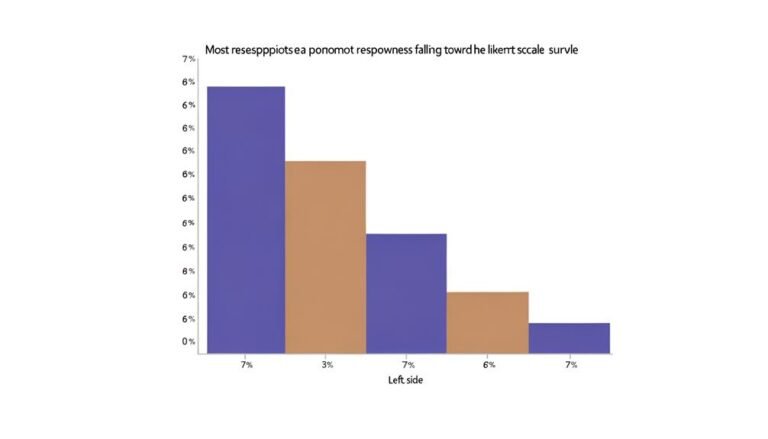What Is Executive Coaching?
In the fast-paced landscape of modern business, the concept of executive coaching has gained significant traction as a strategic tool for professional development. Defined by its targeted approach to enhancing leadership competencies and achieving organizational objectives, executive coaching operates as a dynamic partnership vested in fostering growth and unlocking potential.
However, the intricacies of this practice extend beyond mere guidance, encompassing a multifaceted process that delves into self-discovery, goal setting, and performance optimization. As professionals navigate the complexities of leadership roles, the allure of executive coaching lies in its promise of transformation and empowerment, offering individuals a unique avenue for unlocking their full capabilities and propelling themselves towards success.
Key Takeaways
- Executive coaching is a tailored talent development practice for enhancing leadership skills.
- It involves assessment, feedback, goal setting, and action planning for performance improvement.
- Trust and confidentiality are foundational in the coaching relationship.
- The executive coach plays roles like facilitator, advisor, and motivator to support client growth.
Definition of Executive Coaching
Executive coaching is a tailored practice in talent development that involves cultivating a close and strategic relationship with the individual undergoing coaching to enhance their leadership capabilities. This form of coaching is specifically designed to work with senior managers or leaders to refine their leadership skills and drive organizational success. Through a structured process of assessment, feedback, goal setting, and action planning, executive coaching aims to improve performance and achieve set objectives efficiently.
Purpose and Aim
With a focus on enhancing leadership capabilities and driving organizational success, executive coaching is tailored to senior managers and leaders to refine their skills through a structured process of assessment, feedback, goal setting, and action planning.
The purpose of executive coaching is to empower individuals, particularly those in leadership positions, to unlock their full potential, develop strategic thinking, enhance decision-making abilities, and cultivate effective communication skills.
By honing these leadership qualities, executives can inspire their teams, navigate complex challenges, and steer their organizations toward sustainable growth and success.
Ultimately, the aim of executive coaching is to equip leaders with the tools and insights needed to drive innovation, foster a culture of excellence, and achieve impactful results in today’s dynamic and competitive business environment.
Coaching Process Overview
In the realm of talent development and leadership enhancement, the coaching process serves as a strategic framework for driving individual growth and organizational success. When delving into the coaching process, it is crucial to utilize effective assessment techniques and coaching strategies to maximize potential.
Here are three key elements to consider:
- Assessment Techniques: Implementing thorough assessment methods such as 360-degree feedback, personality assessments, and skills evaluations to identify strengths and areas for development.
- Coaching Strategies: Utilizing tailored coaching strategies like goal setting, action planning, and accountability measures to enhance performance and achieve desired outcomes.
- Feedback Mechanisms: Establishing regular feedback loops to track progress, provide constructive criticism, and adjust strategies as needed for continuous improvement.
Common Coaching Models
Utilizing diverse coaching models is integral to enhancing individual growth and achieving organizational success in talent development and leadership enhancement.
Model effectiveness plays a crucial role in guiding coaching techniques towards desired outcomes. The ATD COACH and GROW models, among others, offer structured approaches to goal setting, skill development, and performance improvement. These models provide a framework for coaches to assess, plan, and support individuals in reaching their full potential.
Trust and Confidentiality
An essential cornerstone of effective executive coaching lies in fostering a culture of trust and upholding strict confidentiality standards. Confidentiality ethics are paramount in building trust between the coach and the client, ensuring open and honest communication.
Establishing a safe space where individuals can freely express their thoughts and concerns without fear of judgment is crucial for the coaching relationship to flourish. Respecting the confidentiality of all information shared during coaching sessions cultivates a sense of security and encourages clients to delve deep into personal and professional challenges.
Maintaining confidentiality not only upholds ethical standards but also demonstrates integrity and professionalism in the coaching process.
Types of Coaching
Understanding the diverse realms of coaching, from career development to leadership enhancement, unveils a spectrum of opportunities for personal and professional growth. Performance improvement is a key focus in coaching, with specialized types such as career coaching offering tailored guidance for advancing in one’s professional journey.
Career development coaching aims to enhance skills, identify strengths, and navigate career transitions effectively. This type of coaching assists individuals in setting and achieving career-related goals, ultimately leading to improved job performance and satisfaction. By honing in on specific skills and goals, individuals can experience significant advancements in their careers, making career development coaching a valuable asset in achieving success and fulfillment in the workplace.
Coaching Models Comparison
Exploring the nuances of various coaching models illuminates distinct methodologies for fostering personal and professional growth and development.
- Model Effectiveness: Different coaching models vary in their effectiveness based on the individual’s needs and goals.
- Coaching Techniques: Each model employs unique coaching techniques such as goal setting, feedback mechanisms, and accountability structures.
- Adaptability: The flexibility of a coaching model to be adapted to different situations and personalities is crucial for its success in driving growth and development.
ATD’s Support in Coaching
In the realm of professional development, ATD plays a pivotal role in empowering individuals and organizations through its comprehensive support in executive coaching initiatives. ATD’s resources are tailored to meet the evolving coaching trends, offering cutting-edge tools and insights for coaching professionals.
By staying abreast of the latest coaching methodologies and best practices, ATD ensures that its members have access to the most effective strategies for enhancing coaching skills and driving impactful results.
Through ATD membership, individuals can leverage a wealth of resources such as tools, templates, and research that are instrumental in developing internal coaching programs and elevating coaching competencies. ATD’s commitment to advancing coaching practices underscores its dedication to fostering excellence in talent development and organizational success.
Key Elements and Benefits
Building upon the foundation laid by ATD’s support in coaching, a closer examination of the key elements and benefits of executive coaching reveals the transformative impact it has on individuals and organizations.
- Improved Performance: Executive coaching enhances leadership skills, leading to improved performance at both individual and organizational levels.
- Career Growth: Through executive coaching, individuals gain increased self-awareness, setting them on a path towards career advancement and personal growth.
- Enhanced Leadership Skills: Coaching fosters the development of essential leadership qualities, equipping individuals with the tools needed to excel in their roles and drive organizational success.
Coach’s Role and Success Measurement
Taking on the role of an executive coach involves guiding, motivating, and empowering individuals towards their growth and development goals. As a facilitator, the executive coach plays a pivotal role in unlocking clients’ potential, offering valuable insights, and fostering a supportive environment for self-discovery and improvement.
Success in executive coaching is meticulously measured through goal attainment metrics, such as the achievement of set objectives, feedback reception, observable behavioral changes, enhancements in performance metrics, and the overall organizational impact brought about by the coaching process. By focusing on these key indicators, executive coaches can gauge the effectiveness of their strategies, adapt their approaches as needed, and ensure that clients make tangible progress towards their aspirations.
Conclusion
In conclusion, executive coaching serves as a strategic tool for enhancing leadership capabilities and driving organizational success. With organizations like ATD offering resources and support, coaching has become a vital aspect of professional development.
One interesting statistic to note is that according to a study by the International Coach Federation, 99% of people who were coached saw improved work performance, while 96% reported improved self-confidence. This highlights the significant impact of executive coaching on individuals seeking career growth and improvement.







